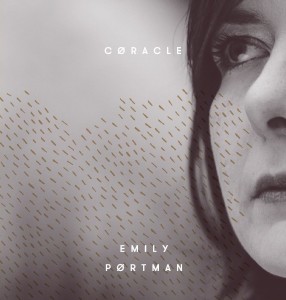Emily Portman is, without a doubt, one of the world’s most magical contributors to the folk scene, and is also arguably England’s strongest in the industry by a wide margin. Embracing traditional sounds and themes with open arms, she innovates the old-time English folk that she already wears so well in convention with a darkly, enchanting vibe akin to the feeling one might get from being lulled to sleep by a time-honoured fairy tale. It’s astounding, perhaps, that the aptly-named Coracle — gentle and vast in its intransitive design, simultaneously enveloping itself in convention while transcending into a march against it — is Portman’s first-ever entirely self-penned solo release; prior to this, she had enjoyed some time with the Furrow Collective. A harrowing, ironically soothing set of tales, Coracle gets high marks as an inventive and original contribution to the music world amongst a sea of pop-shellacked British caricatures.
The medieval wizardry present throughout Coracle comes in abundant strides but never seems overdone or gimmicky, weaving itself swiftly and seamlessly into an audio-centric world of meandering harps, wooden drums, cellos, and violins, a lyrical world of metaphoric coracles made of skin and hair and, lost beloveds transplanted into trees, and atmospheric world of cryptic benevolence to seal the post and deliver it too. Hidden underneath the center-most themes belies glum tales of very modern issues, with much of them to do with motherhood, both during and after birth, and involving the best and worst of times in a prenatal and postnatal world. The thematic syncopation is heard best throughout songs that carry more darkly undertones (“Nightjar”, “Coracle”) as they transition into sunnier melodies (“Dotterine”) and back again for a mystifying finale in “Hollow Feather.” In short, Coracle is one of the easiest recommendations for serious folk fans that 2015 has to offer thus far.
Words: Jonathan Frahm

